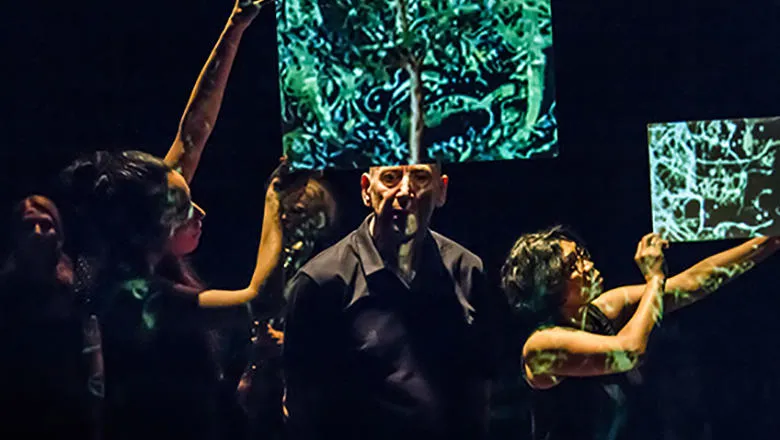Stroke Odysseys calls for us all to work together across voluntary, community, arts, health and education sectors, and government to model a compassionate community that cares for all its members – a message that could not be more important in the challenging times in which we live. Recovering Hope is an essential handbook for everyone with an interest in this field – whether clinician, artist, researcher or patient – and it will be particularly relevant to those dedicated to transforming the lives of people experiencing the effects of a stroke.
Deborah Bull CBE (Baroness Bull), Vice President & Vice Principal (London) & Senior Advisory Fellow for culture
29 October 2020
New book finds quality of life of people living with effects of a stroke greatly improved by arts
Recovering Hope is the first output of SHAPER, the world’s largest study into the impact of arts on mental health

Launching on World Stroke Day on 29th October, new publication Recovering Hope is the result of a decade of working with stroke survivors in hospitals and in the months following their release. The book presents qualitative data and evidence from healthcare professionals, artists and stroke survivors into how a tailored arts intervention can assist in recovery and improve quality of life. The book, written by Kevin Murphy, Lucinda Jarrett and Chris Rawlence from Rosetta Life, is the first output of SHAPER, the world’s largest study into the impact of arts on mental health launched by King’s College London and UCL.
The book lays out the history of the Stroke Odysseys project and explains how Rosetta Life works with stroke communities through movement, song, poetry and performance. Alongside their methodology, evidence and testimonial is given into the therapeutic benefits of the programme. Findings have shown that the Stroke Odysseys project can give participants a sense of being ‘free’, and researchers identified a key theme of ‘the importance of doing something new’ and ‘discovering something new about themselves’ which was rewarding and enabled people to imagine a new life after the trauma of brain injury. Independent qualitative research and ethnographic evaluation found an increase in focus, memory, movement, and confidence, and an overall improvement in wellbeing and quality of life from participants.
The book also outlines how Stroke Odysseys complements and challenges the clinical model of rehabilitation, enabling people to progress on a personal journey of recovery and how it innovates at the junction between art making and care giving, re-connecting these related disciplines.
Alongside the book launch on World Stroke Day, Rosetta Life will be streaming their 12-minute opera I Look For The Think, rehearsed and recorded over Zoom with sixty stroke survivors, professional musicians and the Adult Community Company from Garsington Opera. At the height of the pandemic when vulnerable members of society were shielding, a community of the UK’s most isolated and vulnerable people came together online to create the opera about love after stroke. I Look For The Think by renowned composer Orlando Gough was based on the lived experience of participant Kim Fraser and his wife and carer, Sarah. The opera will also be shown at Royal Berkshire Hospital.
Recovering Hope is now available for download here.
